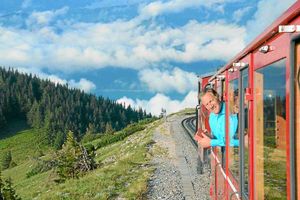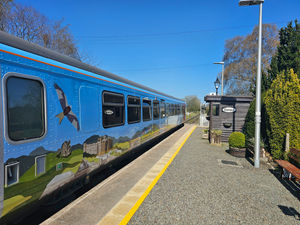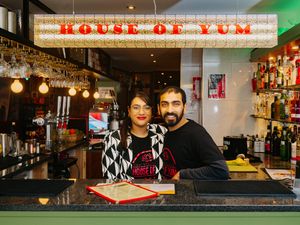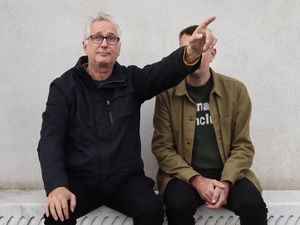TV review: Great Continental Railway Journeys
You could be forgiven for thinking that Michael Portillo is locked in an endless game of one-upmanship with some wooden furniture, with the former Conservative MP having an increasingly unnerving resemblance in persona and expression to a mahogany bookcase.

Mind you, I think a bookcase may have more personality in two shelves than Mr Portillo can often muster over an hour of programming.
In fact, there were times whilst watching last night's episode of Great Continental Railway Journeys (BBC2) where just such an item of furniture could have been photoshopped into the foreground of the sweeping Swiss landscape and the only difference would have been fewer allusions to an antiquated travel guide.
The Bradshaw's guide that Portillo clings to in every shot is referenced with the precision of the apparently impeccable Swiss railway lines.
And unfortunately, that stereotype of boring precision (oh, and don't worry, clocks and watches also get an honourable mention) is all we really get of the culture and people whose land he travels through.
Unlike the greats in the travel pantheon like Palin or Cruickshank, Portillo doesn't engage people with earnest interest. His conversations, perhaps a hangover from his days in politics, are less tête-à-tête, and more Q&A session.
In place of personal information, we're given insipid factoids with the regularity and speed of the Glacier Express between Zermatt and St Moritz.
This itself is another failing of the show. By constantly dredging over the past, the makers have lost the opportunity to really scratch under the surface of how the country's changed between 1913 and modern times. Instead we're constantly dragged back to the days of yore by an avid, yet completely uncharismatic history teacher who comes in on a non-uniform day looking like he's nabbed the clothes off an M&S mannequin.
Again, my main problem with this show, and Portillo as a presenter, is that the travel documentary format is just unsuited to his strengths. He has little ability to actively engage with those around him, and his conversations with locals range from the awkward to the outright cringeworthy.
Maybe I'm alone in my thoughts, but even when making pastry, his small talk feels rather forced: a quiet man out of his comfort zone (note to the producers, next series, try glueing a podium to his chest so he can feel more at home).
Those graceful, panning shots of the landscape that are the bread and butter of this genre are also often done looking out from the inside of grubby train windows.
Not to suggest that they should have dangled the BBC cameraman out the window like a fishing rod, or hurled the full might of 3D at the production, but there are times when you just feel short-changed. We're being taken for a trip through some of the most beautiful scenery in the world, after all, and all I can see is the reflection from the second class compartment – however "beautifully keen, delightfully air-conditioned" or indeed "absolutely satisfactory" that carriage may be.
The few moments of joy in this show come from the brief times our host is allowed to indulge in his passions: trains, details, facts, schematics and plans.
Portillo is the kind of man who can look at a map of tramlines in Zurich that seem as indecipherable as a Haynes Manual on a NASA space shuttle, and gleefully revel in the beauty of its utility.
In fact, this, and indeed all of his travel shows, have had that niche flavour of a train enthusiast making a programme for the anorak-bedecked rail fanatic who can list train times from a century ago with military precision. And how many of those do you know?
By Robert Taylor





